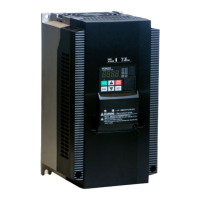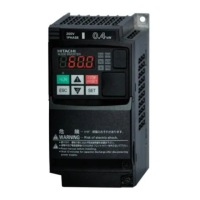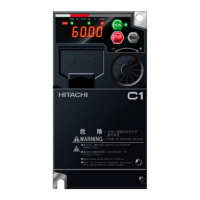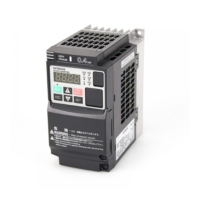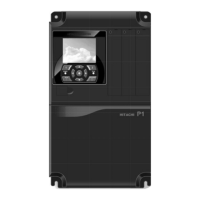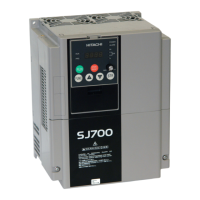3−15
Basic Parameter Settings
These settings affect the most fundamental behavior of the inverter – the outputs to the
motor. The frequency of the inverter’s AC output determines the motor speed. You may
select from three different sources for the reference speed. During application
development you may prefer using the potentiometer, but you may switch to an external
source (control terminal setting) in the finished application, for example.
The base frequency and maximum frequency settings interact according to the graph
below (left). The inverter output operation follows the constant V/f curve until it reaches
the full-scale output voltage at the base frequency. This initial straight line is the
constant-torque part of the operating characteristic. The horizontal line over to the
maximum frequency serves to let the motor run faster, but at a reduced torque. This is
the constant-power operating range. If you want the motor to output constant torque
over its entire operating range (limited to the motor nameplate voltage and frequency
rating), then set the base frequency and maximum frequency equal as shown (below
right).
NOTE: The “2nd motor” settings in the table in this chapter store an alternate set of
parameters for a second motor. The inverter can use the 1st set or 2nd set of
parameters to generate the output frequency to the motor.
“A” Function
Run
Mode
Edit
Defaults
Func.
Code
Name Description Lnitial data Units
A003
Base frequency Settable from 30 Hz to the
maximum frequency(A004)
Settable from 30 Hz to the 2
nd
maximum frequency(A204)
U
60.0 Hz
A203
Base frequency,
2
nd
motor
U
60.0 Hz
A004
Maximum frequency Settable from the base
frequency to 400 Hz
Settable from the 2
nd
base
frequency to 400 Hz
U
60.0 Hz
A204
Maximum frequency,
2
nd
motor
U
60.0 Hz
V
100%
A003
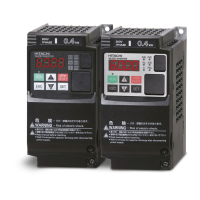
